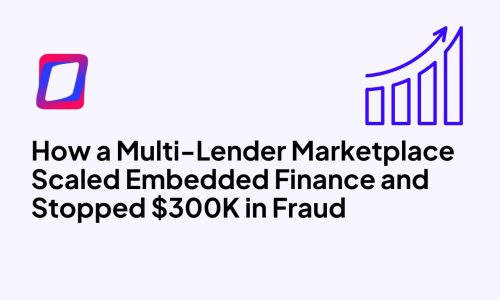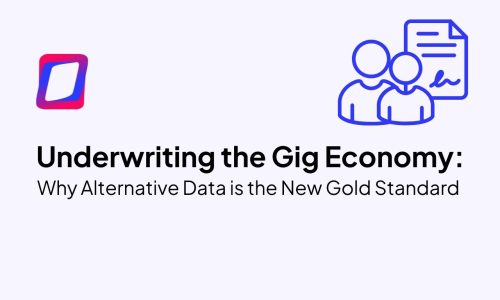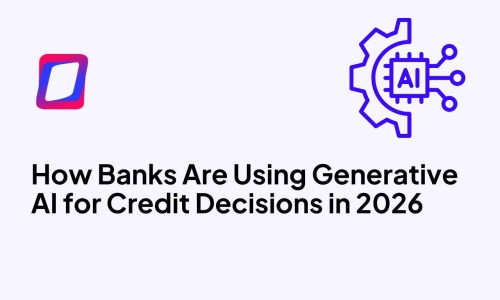EVP Head of Fintech Banking at Cross River Discusses Economic Trends, Fintech Innovations, and Overcoming Industry Challenges
In this engaging episode of the Lending Link Podcast, our host, Rich Alterman, welcomes Adam Goller, the Executive Vice President and Head of Fintech Banking at Cross River Bank, for a deep dive into the intersections of banking, technology, and personal perseverance. Cross River Bank has emerged as a linchpin in the fintech marketplace lending industry, charting a course through innovation and strategic partnerships. Adam unpacks the bank’s history, its pivotal role in the financial sector, and how it continues to redefine the boundaries between traditional banking and fintech solutions.
Listen as Adam highlights Cross River Bank’s collaboration with fintech leaders like Best Egg, discussing the symbiotic relationship and shared commitments that drive success in providing secure, innovative, and customer-focused financial services. The conversation takes us through current trends affecting the fintech and banking industries, from regulatory landscapes to Cross River’s introduction of new product offerings and the broader economic implications on interest rates, homeownership, and consumer financial behavior.
With the rapid growth of faster payment products, Adam and Rich explore the critical importance of fraud prevention strategies and so much more.
Tune in now for a deep dive into the future of finance through the lens of a leading figure at the intersection of banking and technology.
About Cross River
In 2010, Cross River entered into its first technology partnership, offering loans outside of our physical location in New Jersey. As demand increased for partnerships with third-party origination platforms, we knew a window of opportunity was opening for a nimble, technology-driven bank with aspirations of providing access to credit for consumers who were abandoned by legacy banks. More partnerships followed including Affirm, Marlette, Rocket Loans, Upgrade and Upstart, to name a few. Cross River originates and underwrites every loan, owning the end-to-end process, all while ensuring consumer protection and regulatory compliance remain a top priority.
As Cross River’s reputation and position in the industry strengthened and solidified, we became known for both our leading technology and for our operational and regulatory expertise, while exploring new opportunities on behalf of our partners so they can remain focused on innovating and reaching more businesses and consumers.
Since inception, Cross River has been focused on where technology can be incorporated to improve efficiencies and synergies, so naturally, as our partnerships evolved, we looked to see where our strengths were and where we could improve efficiencies and scalability. Our proprietary banking core, Cross River Operating System (COS), was built in-house from the ground up to meet the needs of our fintech banking partners. We continued to
expand our technology and diversify our offerings—with a more specific focus on payments solutions—and worked to develop an in-house mechanism through which systems can process transaction-based payments via APIs in order to provide partners a full suite of banking offerings via our proprietary, API-based core. This was followed by additional payments capabilities including automated wires, push to card, and real-time payments, to name a few.
Listen to the episode on Spotify
Listen to the episode on YouTube
About GDS Link
GDS Link is a global leader in credit risk management, providing tailored software solutions, analytical and consulting services. Our customer-centric risk management and process automation platforms are designed for the modern lender in their pursuit to capitalize on the entire credit lifecycle.
By providing a personal, consultative approach and leveraging our own industry-leading knowledge and expertise, GDS Link’s solutions and services deliver exceptional value and proven results to thousands of clients around the world.
About The Lending Link Podcast
The Lending Link Powered by GDS Link is a podcast hosted by Rich Alterman and designed for the modern-day lender. Each episode deeply delves into innovation within the financial services industry and transformation efforts, including AI / ML integration, Modeling, Risk Management Tactics, and redefining Customer Experiences.
GDS Link launched The Lending Link to explore unique strategies for the modern-day lender, dive into the innovative advancements GDS Link and our partners are currently developing and delivering, and gain insights from captivating guests within the FinTech, banking, and credit union worlds.
We have a wide range of guests from various lending institutions and diverse organizations who talk about strategies, technology, and everything in between.
Check Out Our LinkTree to listen to podcast episodes on your preferred platform.
Recent articles

How a Multi-Lender Marketplace Scaled Embedded Finance and Stopped $300K in Fraud
Read article
Underwriting the Gig Economy: Why Alternative Data is the New Gold Standard
Read article





